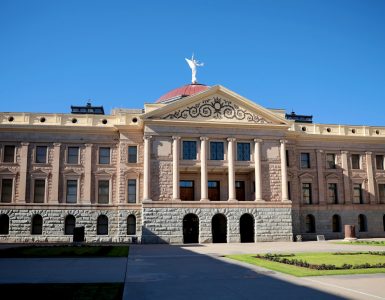Ballot initiatives have been part of Arizona’s political fabric since statehood. Modifications to the process have occurred over the past 100 years, but none as significant as the Voter Protection Act (VPA).
In 1996, Arizona voters passed a state initiative that allowed doctors to prescribe medical marijuana to patients suffering from various conditions. The following year, however, the state Legislature repealed the law.
Voters responded. In 1998 they developed and passed the Voter Protection Act (VPA) to ensure the Legislature could not easily overturn future voter-passed initiatives.
The VPA is an amendment to the state constitution that prohibits legislators from altering, redeveloping, or repealing ballot initiatives. The only way the state Legislature can amend a voter-created initiative is if it “furthers the purpose” of the initial measure. After that, the amendment must receive a three-fourths vote in the Arizona House of Representatives and Senate. Only if it passes both criteria can the state Legislature alter a ballot initiative.
Former State Elections Director and Snell & Wilmer Partner Eric Spencer explains that the constitutional change raises a major topic for debate.
“The VPA is a reaction to what is a legitimate public policy problem to overcome,” he said. “I don’t think anyone would argue that the Legislature should have wholesale, unchecked political power. There needs to be some checks and balances in place.”
However, Spencer notes that the process to revamp initiatives may be too restrictive.
First, determining whether or not an amendment would “further the purpose” of the bill is incredibly ambiguous. Original drafters of the bill may attempt to defend the initiative in court if they disagree with the changes, but Spencer points out that they are likely not the best arbiter in that case.
If it passes through that process, it still has to pass through a three-fourths vote in the Legislature.
“The three-fourths vote makes it practically impossible to make any meaningful changes,” Spencer said. “If it were on ballot by initiative in the first place, that means it was too much of a hot potato to go through the regular legislative process.”
To improve the initiative process, Spencer believes that some alterations to the VPA should be made.
“There are lots of reasons why a large body of law should be tinkered with and refreshed and reevaluated over time,” he said. “The effect of the VPA is that it treats voter-passed laws as almost being sacrosanct. The Legislature can rarely play a role in correcting that body of law. A citizen-passed law is just as likely to be reevaluated and improved as a legislatively passed law, but the VPA handcuffs the Legislature from making those necessary improvements.”
















Add comment